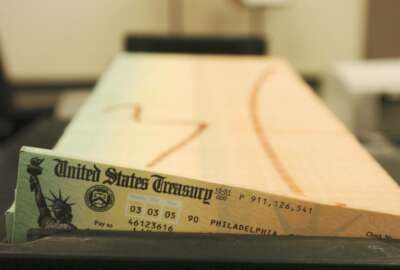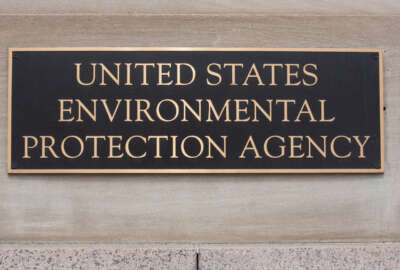
So, what’s your exit strategy?
Working for the government was once a lifetime deal, but Senior Correspondent Mike Causey says those days may be gone.
What are you going to do the first morning you wake up and realize you are retired (adios, rush hour), or will be reporting soon to a new job? Or just plain old unemployed? Turning over and going back to sleep is one option. But there are others worth considering.
Some people have a Plan B. Some don’t. Maybe some who don’t think they need one, at least not yet, should think again.
Depending on where you work, your name may pop up on a hit list that makes you a candidate for a buyout ($25,000 at most agencies, up to $40,000 in the Defense Department). Or a VSIP (early retirement) that would entitle you to keep your federal health insurance coverage in retirement. Or a RIF (reduction in force), which is one of the messiest procedures in the federal HR world. Or what if the new fire-at-will rule first proposed for the Veterans Affairs Department is extended to other federal operations the White House and Congress don’t like, or want to reign in?
Things are so unsettled at the Environmental Protection Agency that the American Federation of Government Employees local union is offering $10,000 in prizes to citizens/taxpayers for the best love letters to the EPA. Not that kind of love, but rather people saying that they appreciate an agency dedicated to keeping their drinking water drinkable and their air breathable without a mask. EPA is in for big-time cuts and it (at least many of the workers) is trying to drum up public and political support via what they say is a nonpolitical campaign. If you’re interested in getting one of the cash prizes from the I-love-the-EPA contest, check out AFGE’s website.
Workers at the Interior, Agriculture, State and Education departments and dozens of other federal operations are bracing for cuts (budget and personnel) that Congress may impose in the next couple of months. If just what is being proposed and predicted happens, lots of people will find themselves trying to decide whether to take a buyout, early retirement or take their chance during a RIF with its last-hired-first-fired rules. So what about you?
If you should suddenly leave or lose your job, what about health insurance? What happens to your unused annual or sick leave? Must you withdraw from the federal TSP?
Today on our Your Turn radio show, we’ll be talking with benefits expert John Grobe. He’s a former fed and author of the book Career Transition: A Guide for Federal Employees.
Generally speaking, if you like (or can at least stand) your federal job, don’t leave, according to Grobe. He makes a good case for the job security, vacation time, health insurance and retirements feds have now as opposed to workers in the private sector. Some feds get touchy about the subject, but it is helpful to know the facts and options before you leap, or get pushed out of your government job. If you are checking out the private sector, Grobe says you should know that only 14 percent of private-sector employers offer a defined benefit retirement plan for new hires and that less than one-third of all nonfederal workers are covered by a pension plan.
For federal and postal workers, the jewel in the crown has always been the Civil Service Retirement System or the Federal Employees Retirement System that replaced it. Although there are proposals to charge workers more while reducing benefits, and plans to reduce the cost-of-living allowance for CSRS retirees and eliminate it for FERS, those are still in the talking stage. Grobe points out that the government’s Thrift Savings Plan is more generous than many private-sector 401(k) plans because of the government’s 5 percent match. He said it’s important to understand the generous nature of the annual leave program, the fact that workers can roll-over some annual leave and be paid for it at retirement, or count unused sick leave toward their service time.
The government is not the gravy train critics make it out to be. Many feds could be making a lot more money in the private sector. But it’s generally a pretty good place to be, and especially to retire from. So what’s your Plan B? Where do you start? Listen to the show today (10a.m. EDT). Call in if you like or you can email questions to me at: mcausey@federalnewsradio.com.
Nearly Useless Factoid
Ray Tomlinson, a computer engineer working for Bolt Beranek and Newman, sent the first network email. The text message he sent from one computer to another via ARPANET consisted of “something like QWERTYUIOP.”
Source: Computing History
Copyright © 2024 Federal News Network. All rights reserved. This website is not intended for users located within the European Economic Area.
Mike Causey is senior correspondent for Federal News Network and writes his daily Federal Report column on federal employees’ pay, benefits and retirement.
Follow @mcauseyWFED





